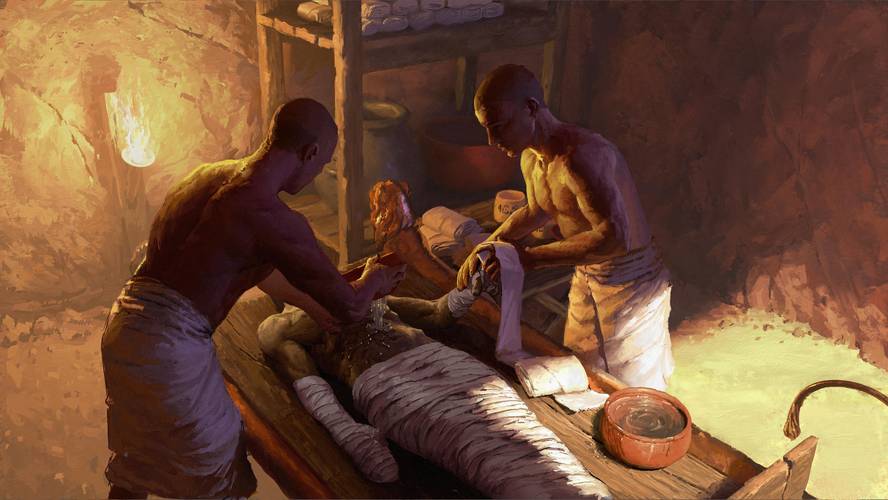Clarify substances and methods of embalmers in ancient Egypt
A group of German and Egyptian researchers have clarified the substances and techniques used by the ancient Egyptians to embalm the dead through the remains of ships found in a mummification room at the Saqqara grave.
The Saqqara tomb was discovered in 2016. On the excavations they found a mummification room with numerous boats. The packaging contained substances for packing with mummification inscriptions. It is explained that it is between the sixth and seventh centuries BC and that through gas chromatography the traces that the boats had were identified.
The results indicate that most of the substances were not from Egypt, but from the entire Mediterranean, including tropical and south-east Asian forests. This also highlights the remoteness of commercial routes.
Researchers have investigated the origin of two substances frequently used in registrations. These substances are called antiu and sefet and have been returned with admiration or incense, and with sacred oil, respectively. Tests have revealed that the first was a mixture of oils or tar from a conifer, and the second of the plants was a denial.
The inscriptions indicate guidelines for the treatment of certain parts of the body. For example, they explain the treatment of the head in the sortzi containers. According to the samples, the embalmers used three mixtures, some of which have not been found so far. For example, castor oil was used only in the head, as well as piston resin. Beeswax, coniferous substances and fat or oil were used in other parts of the body.
According to the researchers, embalmers used these substances for their biochemical characteristics, such as the antimicrobial and antifungal effect, the good smell and the perpetuation of human tissues. Oils and fats were suitable for skin care and retinas, tar and waxes to avoid moisture and close the pores of the skin. In other words, they knew what caused these substances and also knew how to manufacture them, from the extraction of raw materials to the elaboration and use of mixtures.
The research has been published in the journal Nature along with a news article.






